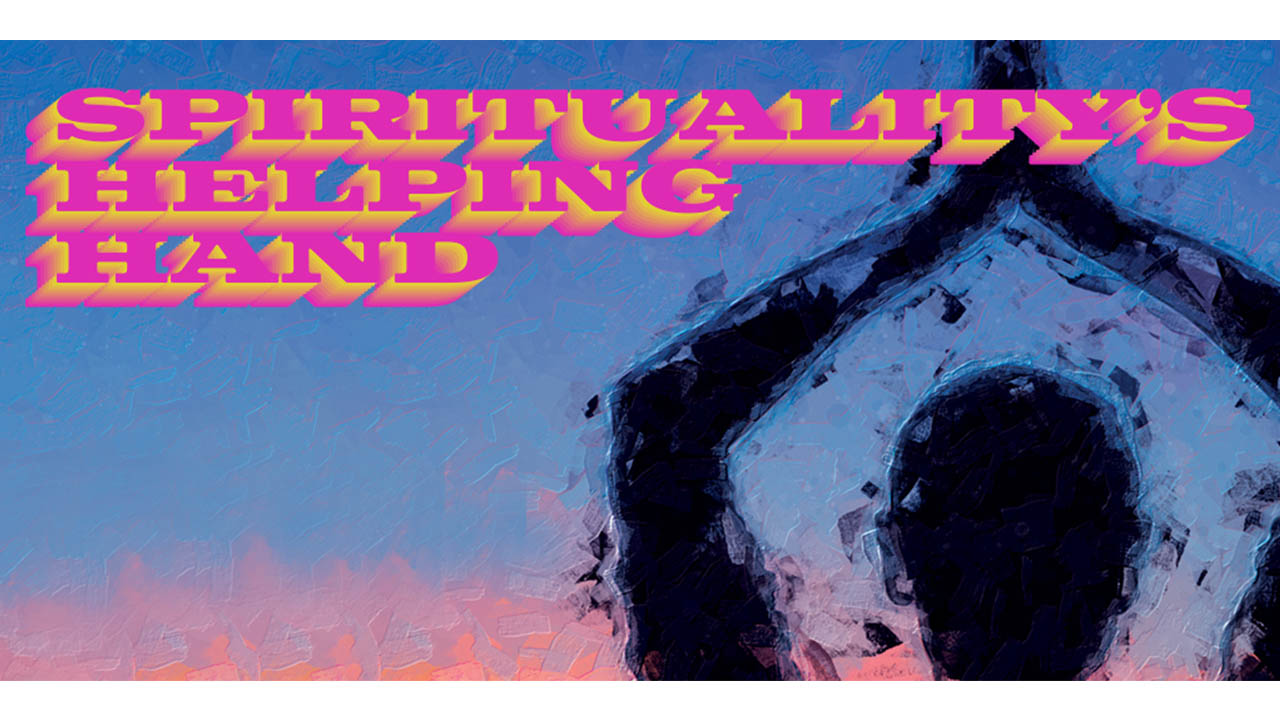Spirituality's Helping Hand

Mental illness comes in many forms. Symptoms can include delusions, hallucinations, depression, a loss of identity, hope and meaning, uncontrollable compulsions, confusion and more. Being afflicted with the identifiers of mental illness can be frightening; loss of control can feel frightening, and an inability to recognize ourselves, thoughts, desires or lack thereof, can be frightening. However, there is a growing belief that with the assistance of spirituality, patients can cope better with their ailments and be more receptive to treatments from mental illness professionals. Below are a list of spiritual activities, both religious and secular, that can possibly help towards living with or battling mental illness.
Spirituality as your abode
Churches, mosques, and synagogues are examples of sacred places of worship that bring people together to be closer to God. The community within the walls of these establishments offer support for the congregation that attends. It is the social support facet of spirituality that is of greatest benefit to individuals living with or experiencing mental illness.
For some, being within these walls generates a feeling of wholeness and love. These pillars can help to strengthen where one might feel weak, and provide clarity where one may experience confusion.
Spirituality can be used as a tool to help restore balance
Arguments aside, a belief in something greater, and more knowledgeable than ourselves, can help to ground and centre our thinking and behaviour. When a safety net is in place, it is still difficult to walk a tight rope, but it makes it a little easier to move forward and try to reach the other side. Activities that can help provide this type of balance could be taking up meditation, yoga, tai chi, or even taking a moment for some deep introspective reflection.
Spirituality as sustenance
We eat for energy, at least, that is its purpose – some eat to bury feelings, to cope with difficult times, and for sheer enjoyment. Spirituality can be adopted for energy generation, the kind that can help to get you out of bed, or face certain realities you may find difficult to do. Through the use of this generated energy, we eventually become stronger. We are able to think more clearly, feel more electric and focused. When in a positive frame of mind, we typically feel more powerful, capable, and these attributes can go a long way towards helping the afflicted to cope with their condition.
Spirituality as exercise
Through focused efforts, persistence, perseverance and discipline, the effects of exercising one’s spirituality are akin to sticking to a workout plan. If you don’t put the work in, you can’t expect the results. But, if you are able to stay the course and not concern yourself with the appearance of the immediate, over time, you will see the results of all your hard work.
Spirituality can help strengthen certain areas in your life that can subsequently assist in the treatments offered by mental health professionals. Engaging in activities that require your sweat, a healthy increase in heart rate and focus, can create a euphoric reaction that helps improve perspective.
Take up a cause and run, bike or walk for a charity, go hiking at a sacred site or one of great importance to you, or baptize yourself on the shores of a beach after floundering around in the water.
Spirituality as an extended circle of friends and family
We often feel more whole when we are with our loved ones. When those relationships are strong, filled with communication, acceptance and understanding, the effects can be divine. With the knowledge that the struggles and challenges of mental illness don’t need to be faced alone, a patient’s ability to stay the course and combat symptoms could likely strengthen. The backup and support that is derived from these relationships can help to encourage perseverance if moments of weakness and despair roll in.
Ways in which people can stay tethered to this anchor are through exposure to their loved ones. Participating in activities together and staying intimate by keeping lines of communication open can ensure that the bridge of understanding between parties stays firm, supportive and trusted.
Spirituality: Worth a try
Spirituality is the soil from which treatment can effectively work. You cannot simply add water to regions where soil won’t sustain growth, or have rich soil without water and expect the same; the physical must work together with the spiritual so that a patient with mental illness is able to cope, accept, and champion on if their diagnosis proves more challenging than anticipated.















